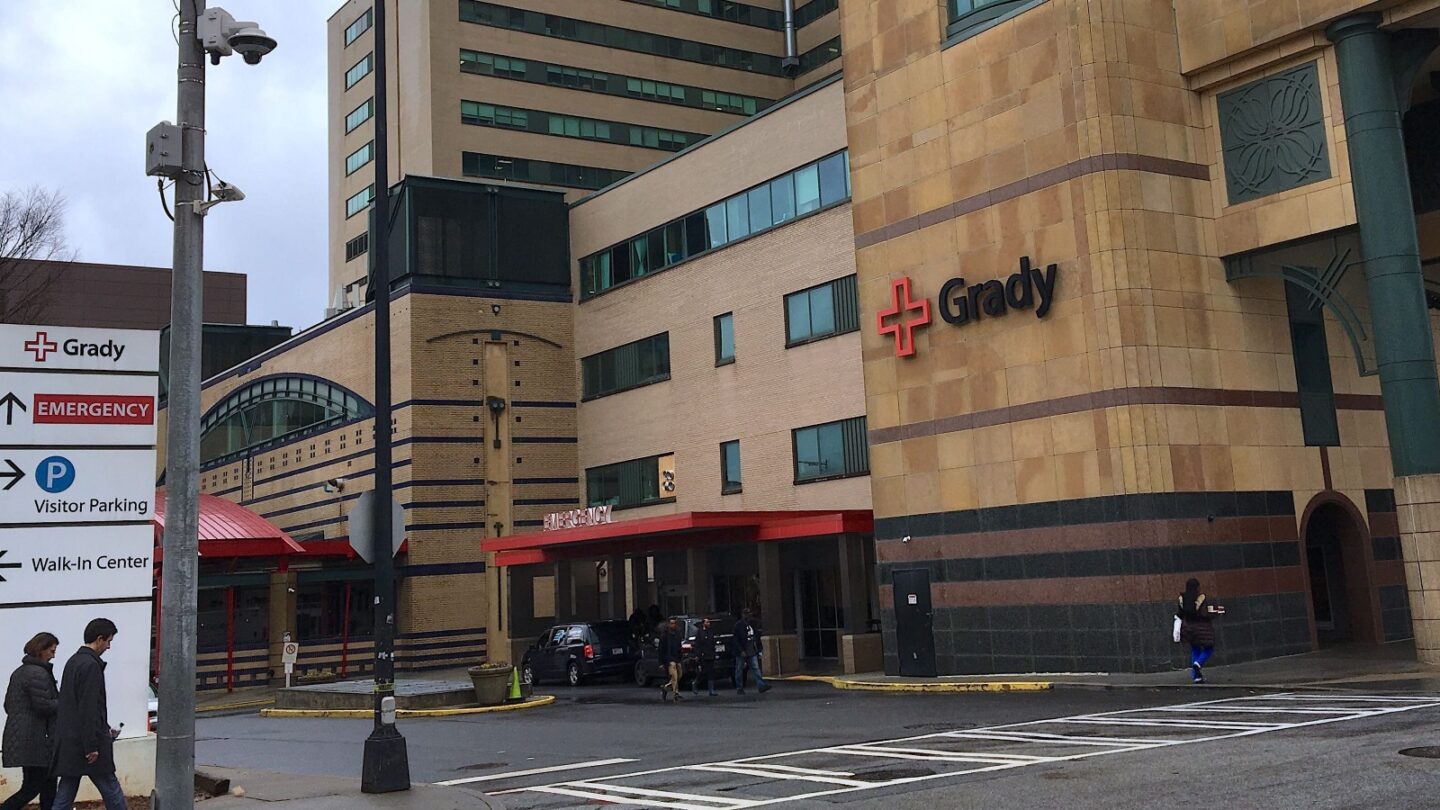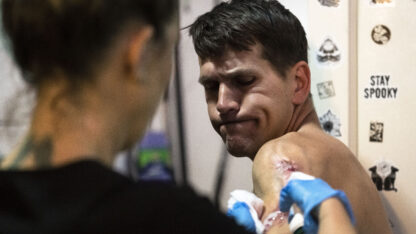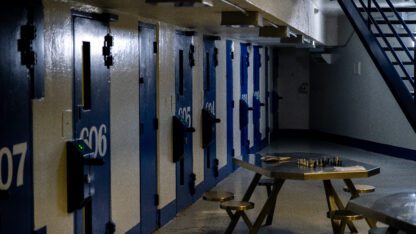Grady Memorial Hospital is connecting emergency department patients with substance-use disorders to more addiction treatment and recovery services right in the ER.
The recently launched initiative is part of an ongoing study with Emory University.
Georgia has seen a sharp rise in drug overdoses, with opioid overdose deaths more than tripling between 2010 and 2021, according to the Georgia Department of Public Health.
Non-fatal drug overdoses, overdose-related ER visits and hospitalizations are also up.
At Grady, at least 15% of emergency department patients have at least one substance use-related problem, said Dr. Joseph Carpenter, Grady emergency medicine physician and assistant professor in emergency medicine at the Emory School of Medicine.
But most ER staff have had little or no training in treating patients in active addiction.
“And we know that a lot of folks might not be willing to be open about their substance use, especially if they’re approached by somebody that asks questions in a potentially leading or stigmatizing manner,” he said.
Through the study, which Carpenter leads as principal investigator, Emory researchers are studying the effectiveness of a new approach.
The program connects Grady ER patients with substance-use disorders with peer recovery coaches trained by the Georgia Council for Recovery. The coaches are people in long-term recovery from addiction themselves. Grady has previously deployed them at its outpatient addiction clinic.
Now, said Carpenter, the study is allowing Grady to expand the peer coaching model to patients in the ER.
“We as medical providers, the majority of us don’t have that lived experience, and no matter what, we’re coming from a position of authority and it’s difficult — no matter how hard we try — to truly be on the level with folks that are in the ER for problems related to substance use,” Carpenter said. “And that lived experience really, we think, does translate to a lot better communication and a lot better engagement.”
The coaches work directly with ER staff and patients, and help patients navigate the addiction treatment and recovery resources available to them at Grady and after their release from the hospital.
“Patients are more apt to actually be invested in the plan that we had together,” said peer recovery coach Michael Mintz.”It is not about what I want them to do, it’s really getting the input from them and what they think is best. And we just try to champion it in that regard.”
The study, called LINCS UP or Linking Individuals Needing Care for Substance Use Disorders in Urban Emergency Departments to Peer Coaches, is funded by a three-year, $2.2 million grant from the U.S. Centers for Disease Control and Prevention.
Grady is offering patients peer recovery coaching in-person, via telemedicine, or standard care with a list of community based recovery resources without peer coaching.
So far, Emory has hired four peer recovery coaches through the study.
“The addiction treatment system in our country is quite separated from the general medical treatment system. And so this is a difficult system to navigate. And our peer coaches are really functioning on an incredibly high level to provide linkages to outside programs that most medical providers wouldn’t even know existed,” Carpenter said.
Organizers hope to enroll hundreds of participants over the next three years at Grady.
Since its launch around three months ago, Carpenter said the pilot study has already seen more than 200 patients at the hospital.
Study coordinators then check in with study participants at seven, 30 and 90 days after their initial ER visit to assess whether patients have continued with a formal addiction treatment program.
The peer recovery coaches can also continue to check in with patients after the 90-day period ends.









